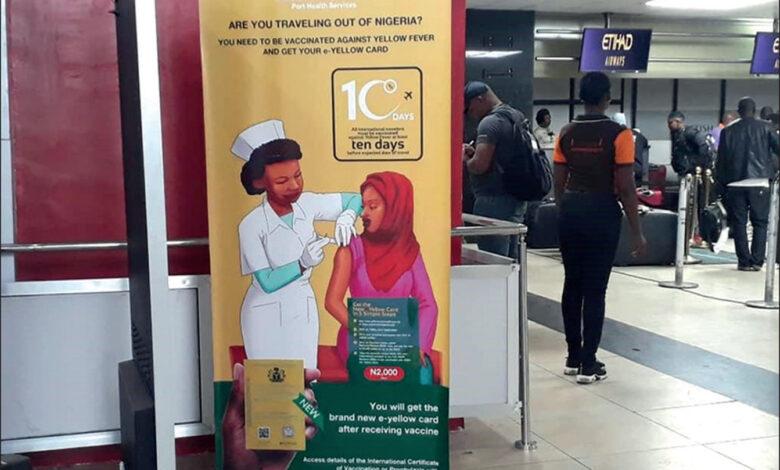
Yellow Fever Prevention, Treatment, and Tips for Nigerians
Yellow Fever Prevention, Treatment, and Tips for Nigerians – Yellow fever remains a significant health concern in Nigeria, posing a threat to public health and well-being. The disease is caused by the yellow fever virus, transmitted primarily through the bites of infected mosquitoes, particularly the Aedes aegypti species. In this article, we will delve into the various measures to prevent and treat yellow fever, with a focus on vaccination, supportive care, herbal remedies, and other important tips to protect individuals in Nigeria.
Yellow Fever Prevention, Treatment, and Tips for Nigerians
I. Vaccination for Yellow Fever:
The yellow fever vaccine is a crucial tool in preventing the spread of the disease. It is a live attenuated vaccine that induces a strong immune response, providing lifelong immunity to those who receive it. The World Health Organization (WHO) recommends that all individuals aged nine months and older living in or traveling to yellow fever endemic areas, including Nigeria, should be vaccinated.Yellow Fever Prevention, Treatment, and Tips for Nigerians
👉 Relocate to Canada Today!
Live, Study and Work in Canada. No Payment is Required! Hurry Now click here to Apply >> Immigrate to CanadaMass vaccination campaigns carried out by the Expanded Program on Immunization (EPI) have been successful in reducing yellow fever cases in Nigeria. The vaccine’s widespread use has significantly contributed to the decline in yellow fever-related deaths globally. Vaccination not only protects individuals from the disease but also helps create herd immunity, reducing the overall transmission of the virus in the community.
Read Also: Top 15 Countries with the Best Healthcare Policies and Regulations
II. Avoiding Mosquito Bites:
Preventing mosquito bites is a crucial step in reducing the risk of contracting yellow fever. Since the Aedes aegypti mosquito is most active during the day, individuals should take extra precautions when in areas where yellow fever is prevalent. Some essential measures include:
1. Wearing Protective Clothing:
Covering exposed skin with long-sleeved shirts and long pants can minimize the risk of mosquito bites.
2. Using Insect Repellent:
Applying mosquito repellents containing DEET or picaridin to exposed skin and clothing can deter mosquitoes from biting.
3. Sleeping Under Mosquito Nets:
Sleeping under insecticide-treated mosquito nets provides an effective barrier against mosquito bites, especially during nighttime when mosquitoes are activeGood morning My Love Message
III. Supportive Care for Yellow Fever:
For those unfortunate enough to contract yellow fever, supportive care plays a vital role in managing the symptoms and complications of the disease. Since there is no specific antiviral treatment for yellow fever, supportive care aims to alleviate symptoms and improve the patient’s overall well-being. Key elements of supportive care include:
1. Hydration:
Maintaining adequate fluid intake is essential, as fever and vomiting can lead to dehydration. Intravenous fluids may be required for severe cases.JAMB portal
👉 Relocate to Canada Today!
Live, Study and Work in Canada. No Payment is Required! Hurry Now click here to Apply >> Immigrate to Canada2. Rest:
Resting allows the body to focus its energy on fighting the virus and aids in the recovery process.
3. Fever and Pain Management:
Over-the-counter medications such as acetaminophen or ibuprofen can help reduce fever and alleviate pain.
IV. Herbal Remedies for Yellow Fever:
In Nigeria, traditional herbal remedies have been used for centuries to manage various health conditions, including infectious diseases. While some herbs may possess antiviral properties, it is essential to clarify that there is no scientific evidence supporting their use as a cure for yellow fever. If individuals are considering using herbal remedies, it is crucial to consult a healthcare professional to avoid potential interactions with other medications and ensure their safety.
Read Also: Top 15 Major Container Ports Worldwide
V. Antibiotics and Intensive Care:
In some cases, individuals infected with yellow fever may develop bacterial infections as well. In such instances, antibiotics may be necessary to treat the secondary infection. Additionally, severe cases of yellow fever can lead to complications such as liver failure, kidney failure, or bleeding disorders. In these situations, intensive care unit (ICU) admission may be necessary to provide advanced medical support and monitoring.Romantic love message
VI. Blood Transfusion and Dialysis:
Yellow fever can cause severe anemia and damage to the kidneys, leading to the need for blood transfusions or dialysis in certain cases. Blood transfusions can help restore red blood cell levels and alleviate anemia, while dialysis can assist in purifying the blood when the kidneys are unable to function adequately.
VII. Liver Transplant:
In extremely rare and severe cases of yellow fever where the liver is severely affected, a liver transplant may be considered. A liver transplant involves surgically replacing the damaged liver with a healthy liver from a compatible donor. This intervention is a last resort and is not commonly performed for yellow fever cases.
Read Also: Top 15 Nations with Large Reserves of Precious Metals
VIII. Fatality Rate of Yellow Fever:
Despite significant advancements in healthcare, yellow fever can still be a fatal disease, especially when appropriate medical care is not accessible. The overall fatality rate for yellow fever is estimated to be around 20%, but it can be as high as 50% in severe outbreaks. Vaccination, early detection, and supportive care are critical in reducing mortality rates and improving outcomes for those affected by the disease.Information guide Nigeria
Additional Tips for Preventing Yellow Fever in Nigeria:
1. Awareness of Yellow Fever Risk:
Individuals should be aware of the risk of yellow fever in the specific area they are visiting or residing in Nigeria. Staying informed about the disease’s prevalence can help individuals take appropriate preventive measures.
2. Consultation with a Healthcare Provider:
Before traveling to areas where yellow fever is endemic or considering any medical intervention, it is essential to consult with a healthcare provider. They can assess an individual’s vaccination status, provide necessary immunizations, and offer guidance on preventive measures.
Read Also: Top 15 Major Container Ports Worldwide
3. Proper Vaccine Documentation:
Yellow fever vaccine certificates are required for international travel to and from countries where the disease is endemic. It is crucial to follow the instructions on the vaccine certificate carefully and ensure it is valid and up-to-date.
4. Prompt Medical Attention:
If an individual develops symptoms consistent with yellow fever, such as fever, headache, muscle pain, vomiting, or jaundice, seeking immediate medical attention is vital. Early diagnosis and treatment can significantly improve the outcome of the disease.
Read Also: Top 15 Countries for Medical Innovation in Africa
Conclusion
Yellow fever remains a significant health concern in Nigeria, requiring a multi-faceted approach to prevention and treatment. Vaccination is the most effective way to prevent yellow fever, providing lifelong immunity to those vaccinated. Preventive measures such as avoiding mosquito bites, supportive care for those infected, and proper medical attention play critical roles in managing the disease and reducing complicationsNYSC Portal
While traditional herbal remedies are part of Nigeria’s cultural heritage, they should not replace vaccination or evidence-based medical treatment. Consultation with healthcare professionals is essential when considering herbal remedies to ensure their safety and potential benefits.
To combat yellow fever effectively, it is crucial to raise public awareness, enhance vaccination coverage, improve access to healthcare facilities, and implement mosquito control measures. By adopting a comprehensive approach, Nigeria can work towards minimizing the impact of yellow fever on its population and move closer to eliminating the disease as a public health threat.
Check JAMB RESULT
Check and Confirm: How much is Dollar to Naira




